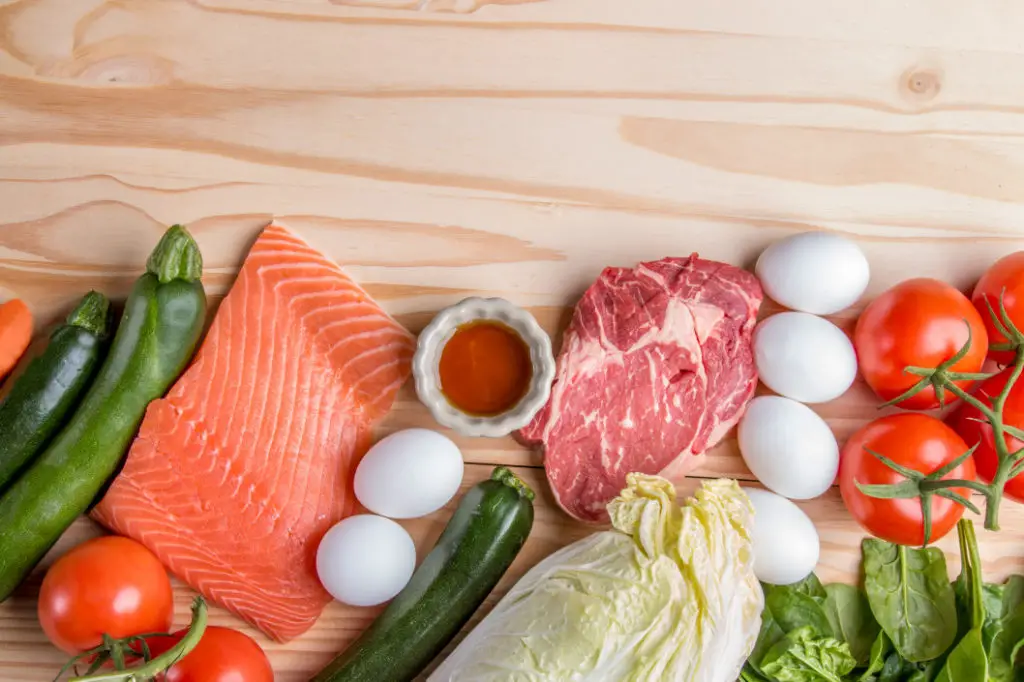We all want to provide our pets with the best possible nutrition, but with so many options available, it can be overwhelming to know what to choose.
The quality of your dog’s food can have a significant impact on their health and wellbeing, so it’s essential to understand what ingredients are essential for a balanced and nutritious diet.
In this guide, we’ll explore the best ingredients for dog food that will provide your furry friend with the nutrients they need to thrive.
We’ll cover everything from protein to carbohydrates, fats, and essential vitamins and minerals, as well as some tips on choosing the right food for your dog’s unique needs.

Understanding Your Dog’s Nutritional Needs
Before we dive into the best ingredients for dog food, it’s essential to understand the nutritional needs of your furry friend. Dogs require a balanced diet that includes protein, carbohydrates, fats, vitamins, and minerals to maintain optimal health.
Protein is crucial for building and repairing tissues, as well as supporting the immune system. Carbohydrates provide energy and fiber, while fats help absorb vitamins and promote healthy skin and coat.
Essential vitamins and minerals, such as calcium, phosphorus, and vitamin D, are necessary for bone health, while others, like vitamin A and E, support the immune system and promote healthy skin and coat.
The Best Ingredients for Dog Food
Now that we understand what nutrients our dogs need, let’s take a look at the best ingredients for dog food that will provide them with a balanced and nutritious diet.
1. High-Quality Protein Sources
Protein is the most important nutrient in your dog’s diet, and it should make up at least 25% of their daily caloric intake. Look for high-quality protein sources like chicken, turkey, beef, lamb, fish, and eggs.
Avoid low-quality protein sources like meat by-products, which can be difficult for dogs to digest and provide little nutritional value.
2. Whole Grains
Carbohydrates provide energy and fiber, and whole grains like brown rice, quinoa, and oats are excellent sources. They’re also rich in vitamins and minerals like magnesium, phosphorus, and B vitamins.
Avoid grains like corn, wheat, and soy, which can be difficult for dogs to digest and may cause allergies or sensitivities.
3. Healthy Fats
Fats are essential for absorbing vitamins and promoting healthy skin and coat. Look for healthy fats like chicken fat, fish oil, and flaxseed oil, which are rich in omega-3 and omega-6 fatty acids.
Avoid fats like tallow and lard, which are high in saturated fats and can lead to obesity and other health problems.
4. Vegetables and Fruits
Vegetables and fruits are excellent sources of vitamins and minerals, fiber, and antioxidants. Look for ingredients like sweet potatoes, carrots, green beans, peas, and apples, which provide a range of nutrients and support overall health.
Avoid vegetables like onions and garlic, which can be toxic to dogs in large amounts.
5. Essential Vitamins and Minerals
Essential vitamins and minerals like calcium, phosphorus, vitamin D, and vitamin E are crucial for maintaining optimal health. Look for ingredients like bone meal, eggshells, and fish meal, which are excellent sources of calcium and phosphorus.
Vitamin D helps with calcium absorption, while vitamin E promotes healthy skin and coat.
Choosing the Right Food for Your Dog
When choosing a food for your dog, look for one that meets their nutritional requirements and is appropriate for their life stage. Puppy food is designed for growing puppies, while adult food is suitable for most adult dogs.
Senior dog food is designed for older dogs who may have different nutritional needs.
Consider your dog’s activity level and weight when choosing food. Active dogs may require more protein and calories, while overweight dogs may benefit from a weight management formula that is lower in calories.
If your dog has any health issues, speak with your veterinarian about what type of food is best for them.
For example, dogs with kidney disease may require a low-protein diet, while dogs with allergies or sensitivities may benefit from a limited-ingredient or grain-free diet.
Conclusion
Providing your dog with a balanced and nutritious diet is essential for their health and wellbeing. When choosing the best ingredients for dog food, look for high-quality protein sources, whole grains, healthy fats, vegetables and fruits, and essential vitamins and minerals.
Consider your dog’s unique needs when choosing a food, and speak with your veterinarian if you have any concerns.
By providing your furry friend with a healthy and nutritious diet, you can help ensure that they live a long, happy, and healthy life.
FAQs
Can I make my own dog food at home?
While it is possible to make your own dog food at home, it’s important to ensure that it meets your dog’s nutritional requirements. Speak with a veterinarian or a veterinary nutritionist before making any homemade dog food to ensure that it is balanced and provides all the necessary nutrients.
Is grain-free dog food better for my dog?
Not necessarily. While some dogs may benefit from a grain-free diet, others may not. Speak with your veterinarian to determine whether grain-free dog food is right for your furry friend.
Should I give my dog supplements?
In most cases, a balanced and nutritious diet will provide all the necessary vitamins and minerals for your dog. However, if your dog has specific health issues or is on a homemade diet, they may benefit from supplements. Speak with your veterinarian before giving your dog any supplements.
How often should I feed my dog?
Most adult dogs should be fed twice a day, while puppies may require more frequent meals. Speak with your veterinarian to determine the best feeding schedule for your dog.
Can I give my dog human food?
While some human foods are safe for dogs, others can be toxic. Speak with your veterinarian before giving your dog any human food, and always avoid foods like chocolate, onions, garlic, and grapes, which can be dangerous for dogs.
